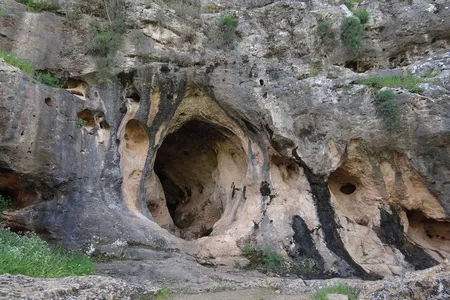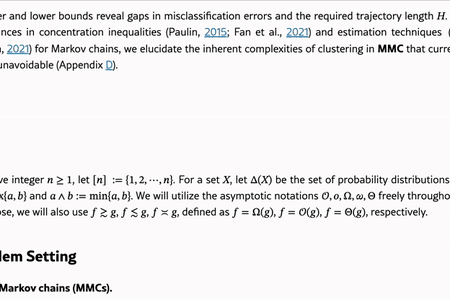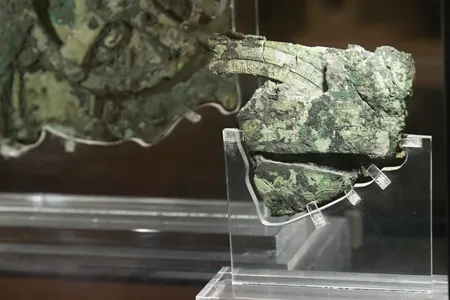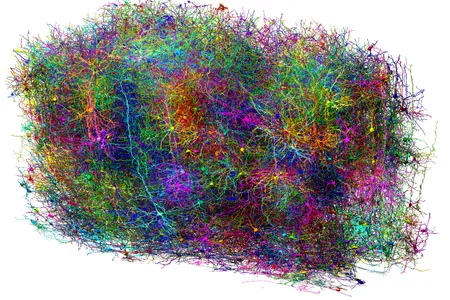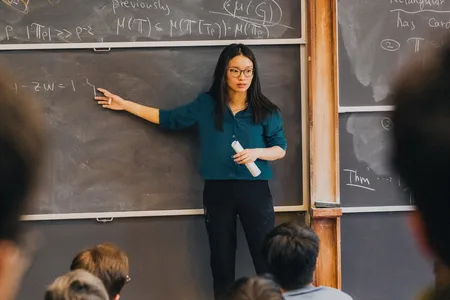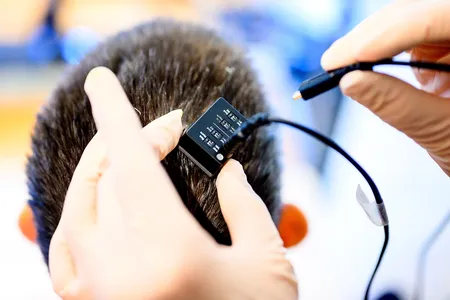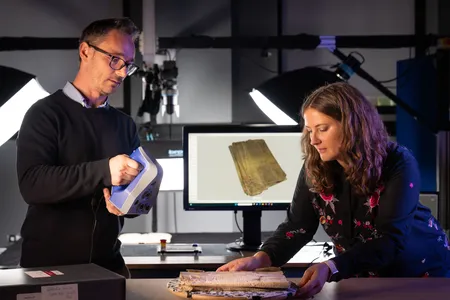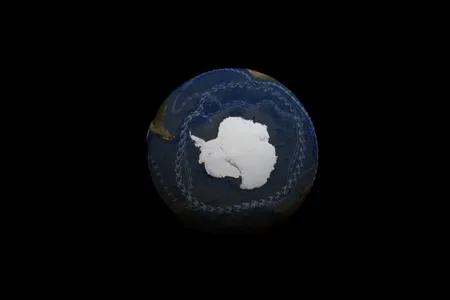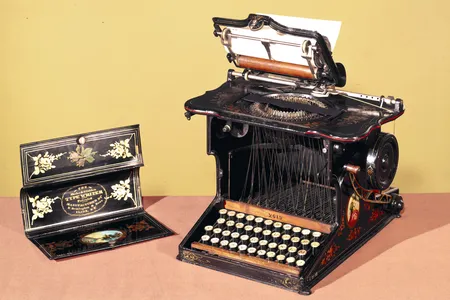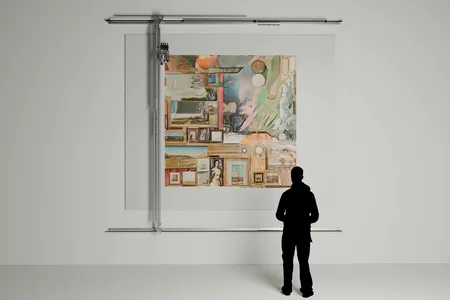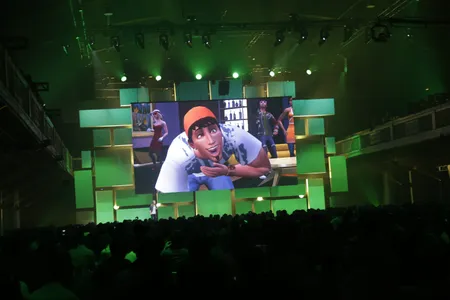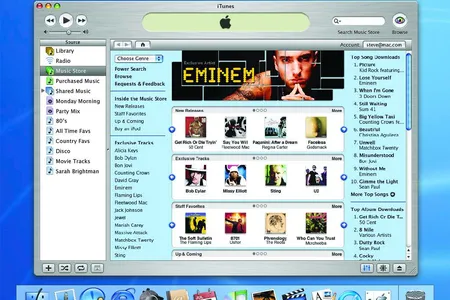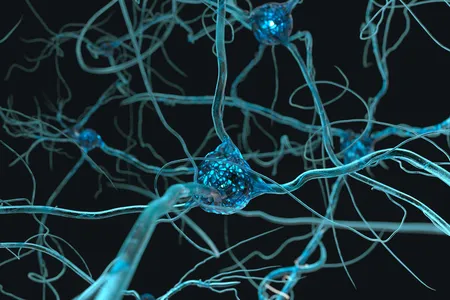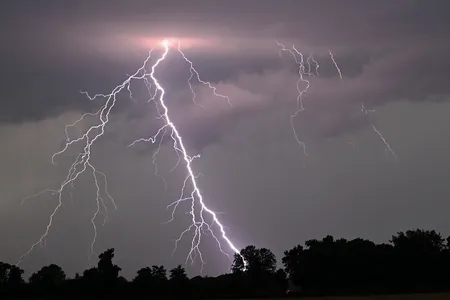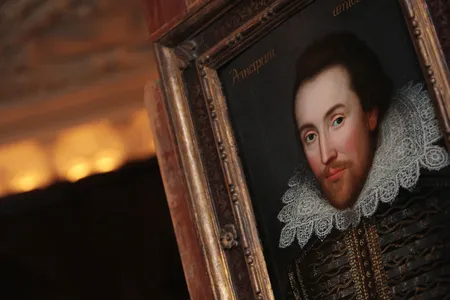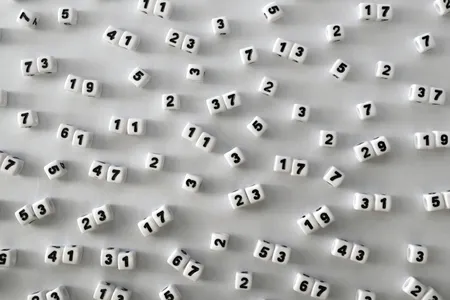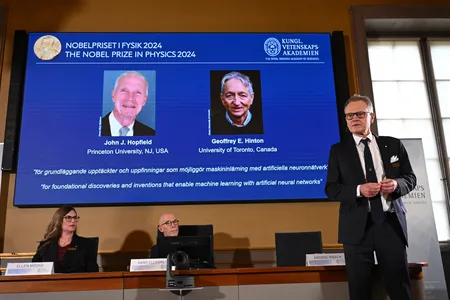A Child’s Skull That Has Long Confounded Archaeologists Might Be a Human-Neanderthal Hybrid, Study Suggests
According to new CT scans and models, parts of the 140,000-year-old skull resemble those of modern humans, while the jaw appears to be more similar to those of our extinct relatives
Some Researchers Are Hiding Secret Messages in Their Papers, but They’re Not Meant for Humans
Journalists have uncovered a handful of preprint academic studies with hidden prompts instructing A.I. reviewers to give positive responses
Google Is Training a New A.I. Model to Decode Dolphin Chatter—and Potentially Talk Back
The company says its new model, called DolphinGemma, will be made open source this summer. Researchers are also trying to train dolphins to mimic made-up names for certain objects
How Well Did the Mysterious Antikythera Mechanism Actually Work?
Historians think the 2,000-year-old device was used to predict the positions of celestial bodies. A new digital simulation suggests that its gears may have frequently malfunctioned
In a World First, Researchers Mapped Part of a Mouse’s Brain in Incredible Detail. It’s a Leap Forward for Neuroscience
The 3D brain map includes more than 200,000 cells, 523 million synapses and over two miles of axons, representing the most detailed wiring diagram of a piece of mammal brain ever constructed
Mathematicians Solve Decades-Old Geometry Problem About Spinning a Needle That Had Long Puzzled the Field
A new proof solves the “Kakeya conjecture” in three dimensions, opening up a new set of possibilities for mathematics, from computer science to cryptography
Enhanced Brain Implant Translates Stroke Survivor’s Thoughts Into Nearly Instant Speech Using Artificial Intelligence
The system harnesses technology similar to that of devices like Alexa and Siri, according to the researchers, and improves on a previous model
High-Tech Imaging Allows Researchers to Read Handwritten Medieval Arthurian Tales Hidden in the Binding of a Property Record
The stories are part of a French sequel to Arthurian legend, and its binding was repurposed in the 16th century
Earth’s Strongest Ocean Current Could Slow 20 Percent by 2050 Because of Climate Change, Study Finds
The Antarctic Circumpolar Current is involved in everything from storing carbon to guarding Antarctica from invasive marine species, and a slower current could have far-reaching consequences
The QWERTY Keyboard Will Never Die. Where Did the 150-Year-Old Design Come From?
The invention’s true origin story has long been the subject of debate. Some argue it was created to prevent typewriter jams, while others insist it’s linked to the telegraph
Bletchley Park Exhibition Shows How World War II-Era Research Shaped Artificial Intelligence
Titled “The Age of A.I.,” the show examines the technology’s 20th-century roots and spotlights its role in contemporary healthcare, environmental conservation and the creative industries
Artists Sign Open Letter Protesting Christie’s Upcoming All-A.I. Art Auction
Some artists fear that A.I. models trained on their work will eventually put them out of business, while others are embracing the latest technology in an effort to expand the bounds of human creativity
‘The Sims’ Turned Mere Mortals Into Gods. Twenty-Five Years Later, the Addictive Computer Game Is Still Going Strong
The audience for the trailblazing life simulation game has stuck around through new editions, expansion packs and designs to keep playing
How A.I. Can Help Humans Battle Wildfires, From Advanced Camera Systems to Forecasting Models
A variety of new technologies aim to improve wildfire detection and help map the spread of blazes
The Way We Listen to Music Changed Forever When Apple Launched iTunes in 2001
The digital jukebox enjoyed a two-decade reign as the dominant program for storing audio files
The Speed of Human Thought Is Far Slower Than the Average Wi-Fi, Study Suggests
But the rate that we gather sensory data is 100 million times faster than our thought processes, making our brains champions at filtering information from our chaotic surroundings
Google Reveals New A.I. Model That Predicts Weather Better Than the Best Traditional Forecasts
Instead of crunching mathematical calculations, GenCast was trained on four decades of historical weather data to produce an array of 15-day forecasts
ChatGPT or Shakespeare? Readers Couldn’t Tell the Difference—and Even Preferred A.I.-Generated Verse
A new study suggests people might like chatbot-produced poems for their simple and straightforward images, emotions and themes
Amateur Mathematician Discovers the Largest Known Prime Number, With More Than 41 Million Digits
Called M136279841, the value belongs to a rare class of prime numbers called Mersenne primes and was found using a supercomputer system spread across 17 countries
Scientists Who Developed the Building Blocks of Artificial Intelligence Win Nobel Prize in Physics
John Hopfield and Geoffrey Hinton shared the award for their work on artificial neural networks and machine learning
Page 1 of 16
